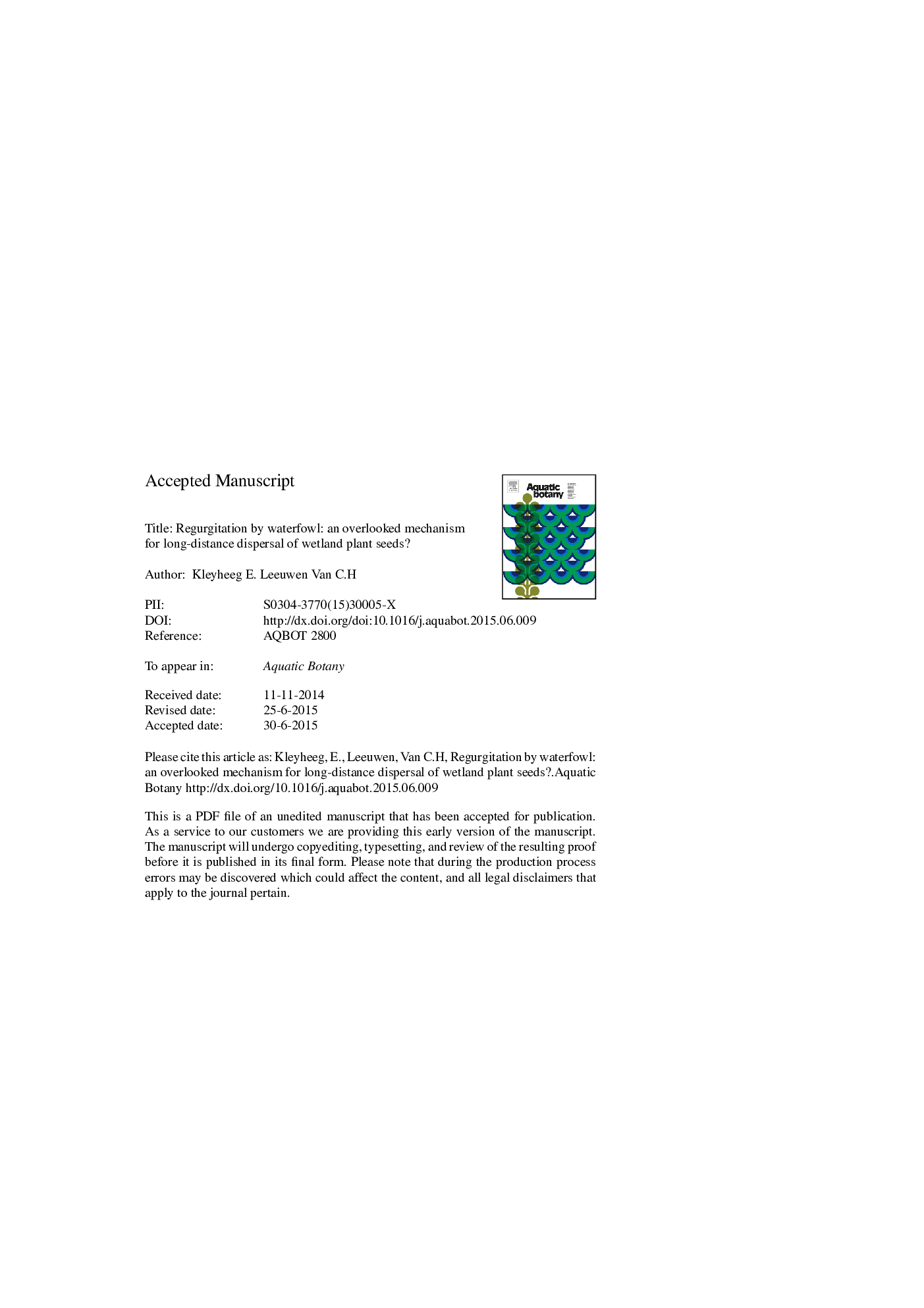| Article ID | Journal | Published Year | Pages | File Type |
|---|---|---|---|---|
| 6381704 | Aquatic Botany | 2015 | 23 Pages |
Abstract
Birds commonly regurgitate indigested particles after foraging. Many frugivorous birds regurgitate seeds ingested with the flesh of fruits, which importantly contributes to plant dispersal in terrestrial ecosystems. In freshwater ecosystems, waterbirds are known to defecate viable seeds in their faeces, but little is known about regurgitation as a potential additional seed dispersal mechanism. We experimentally fed eight mallards (Anas platyrhynchos) with a high and low volume of seeds of ten wetland plant species, and monitored regurgitation and defecation of intact seeds over 24Â h. Regurgitation occurred at least once in all individual mallards and was induced by two different mechanisms: (i) feeding of high food volumes was significantly associated with regurgitation of all seed species from the crop after retention times of 1-3Â h, and (ii) large indigestible seeds were expelled from the gizzard 11 or more hours after feeding. Seed regurgitation was much less plant species-specific than survival of seeds passing digestion, which suggests it is a particularly suitable dispersal mechanism for plant species unable to disperse by endozoochory (such as plant species with large, soft-bodied seeds). Observations of regurgitation by wild waterbirds are needed to improve our knowledge on this additional role of waterbirds in ecosystem functioning.
Related Topics
Life Sciences
Agricultural and Biological Sciences
Aquatic Science
Authors
E. Kleyheeg, C.H.A. van Leeuwen,
